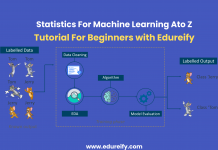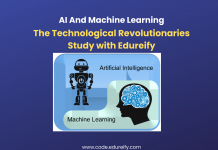What is Artificial Intelligence?
Artificial Intelligence (AI) is a field of computer science that aims to create intelligent machines that can perform tasks that typically require human intelligence, such as learning, problem-solving, decision making, natural language processing, and perception. AI encompasses a wide range of subfields, including machine learning, deep learning, computer vision, natural language processing, robotics, and expert systems.
AI systems use algorithms and statistical models to analyze and learn from data, allowing them to make predictions and decisions based on patterns and rules. Machine learning algorithms, for example, enable computers to learn from large sets of data and improve their performance over time, while natural language processing algorithms enable computers to understand and process human language.
AI technology has been applied in a variety of industries, including healthcare, finance, transportation, and entertainment, and has the potential to revolutionize many aspects of daily life. However, as with any powerful technology, there are also concerns about the ethical and societal implications of AI, including issues related to privacy, bias, and job displacement.
How it is helpful in coding?
AI can be helpful in coding in several ways. One of the primary ways AI is used in coding is through machine learning algorithms that can analyze large datasets of code to identify patterns, make predictions, and suggest improvements. This can help developers write more efficient and effective code and reduce the time and resources required to develop and test software.
Another way AI can be helpful in coding is through automated code generation, which uses machine learning to generate code based on specifications or examples provided by the developer. This can be particularly useful for repetitive or tedious coding tasks, allowing developers to focus on higher-level problem-solving and design.
AI can also be used in code optimization, which involves automatically optimizing code for performance or resource usage. For example, AI algorithms can identify bottlenecks in code and suggest optimizations to improve its efficiency.
Overall, AI has the potential to improve the speed, accuracy, and efficiency of coding, allowing developers to create better software in less time. However, it’s important to note that AI is not a replacement for human programmers and can only be effective when used in conjunction with human expertise and judgment.
Unleashing the potential of AI in Coding
To unleash the full potential of AI in coding, it’s important to focus on several key areas:
- Data: AI systems rely on large, diverse, and high-quality datasets to learn and make accurate predictions. Providing AI algorithms with access to a diverse range of code samples and data can help improve their performance and accuracy.
- Algorithms: Developing and improving machine learning algorithms that are specifically designed for coding tasks can help unlock new possibilities for AI in programming. This can include algorithms that can generate code, optimize performance, and provide suggestions for improvements.
- Integration: Integrating AI technologies seamlessly into existing software development workflows can help improve their adoption and effectiveness. This can involve integrating AI tools into integrated development environments (IDEs) or creating APIs that can be accessed by developers.
- Education: Providing developers with training and education on AI technologies and their applications in coding can help improve their understanding and adoption of these tools. This can help developers leverage the power of AI to improve their productivity and efficiency.
- Collaboration: Collaborating with other developers, data scientists, and experts in AI can help identify new use cases and applications for AI in coding. This can involve sharing datasets, algorithms, and best practices to improve the performance and effectiveness of AI systems in programming.

By focusing on these areas, we can unlock the full potential of AI in coding and create more efficient, effective, and innovative software solutions.
Upcoming opportunities
There are several upcoming opportunities in the field of AI that have the potential to revolutionize the way we approach coding and software development. Here are a few examples:
- AutoML: AutoML, or automated machine learning, is a set of tools and techniques that enable non-experts to create machine learning models without requiring extensive knowledge of AI or data science. AutoML tools can help developers build machine learning models more quickly and easily, making it easier to integrate AI into software development workflows.
- Natural Language Processing (NLP): NLP is an AI subfield that focuses on the interaction between computers and human language. NLP technology is rapidly improving, making it easier to build natural language interfaces and chatbots that can interact with users in a more human-like way.
- Reinforcement Learning: Reinforcement learning is a type of machine learning that involves training an AI system through trial and error. Reinforcement learning algorithms are becoming increasingly sophisticated, making it possible to train AI systems to perform complex tasks and make decisions in real-time.
- Explainable AI: Explainable AI, or XAI, is a set of tools and techniques that enable developers to understand how AI systems make decisions. XAI technology can help improve the transparency and accountability of AI systems, making it easier to identify and address bias or errors in AI-driven software.
Overall, these and other emerging AI technologies have the potential to transform the way we approach software development, making it easier to build intelligent and efficient software solutions. By staying up-to-date on the latest trends and opportunities in AI, developers can remain at the forefront of this exciting field.
Master Your Coding Skills with BootSelf AI
If you're looking to enhance your coding abilities and upskill in artificial intelligence, look no further than the BootSelf AI app. This innovative platform provides AI-based coding lessons that are tailored to your individual learning pace.
Available on both iOS and Android, you can download the BootSelf AI app and start mastering coding skills today:









